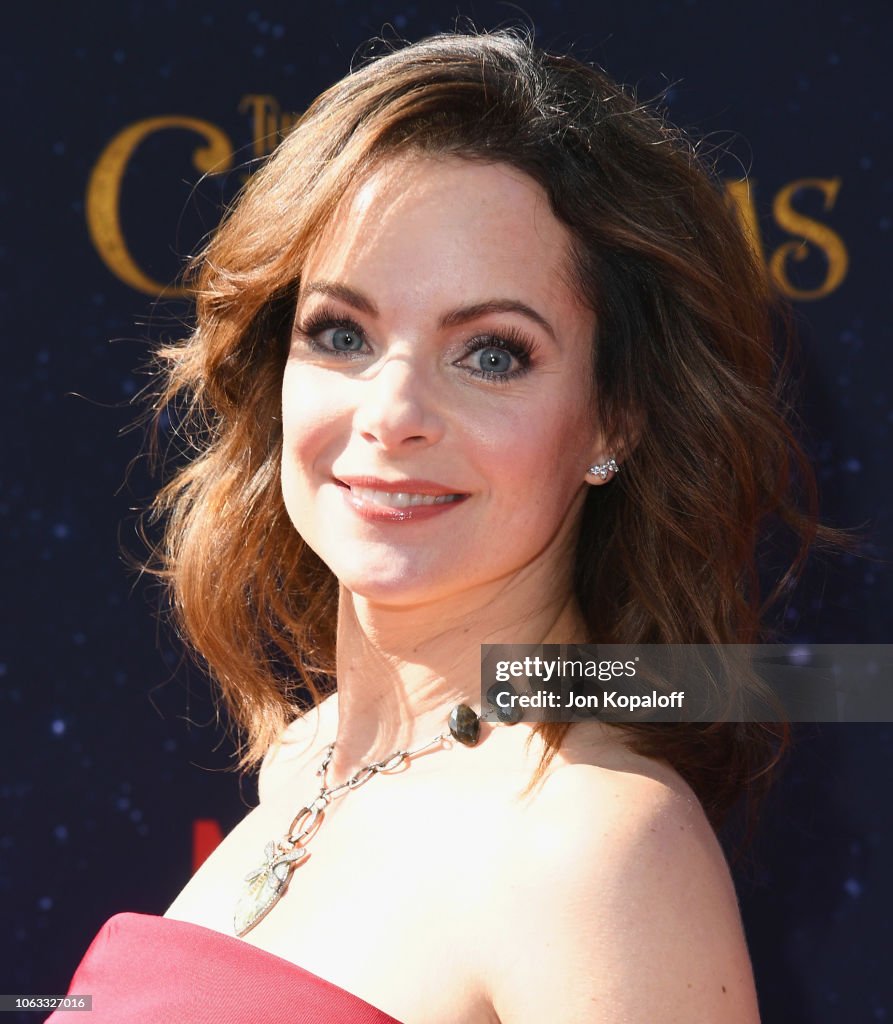Kimberly Williams-Paisley - A Voice Uncovered
There are moments in life, you know, when things just hit you, and they hit you hard. For someone like Kimberly Williams-Paisley, a person we often see on screens, smiling and performing, the idea of facing a really tough personal challenge might seem a bit distant to some. Yet, she has, actually, shared something incredibly personal, something that really speaks to the hidden battles many people quietly face every day. It's about finding yourself in a spot where your own body feels, well, not entirely your own.
This kind of experience, where you feel sort of disconnected from yourself, it really makes you think about how we all, in some respects, rely on our ability to express who we are. When a public figure, someone like Kimberly Williams-Paisley, lets us in on such a vulnerable part of their journey, it creates a powerful connection. It reminds us that even those we look up to or see in movies are, truly, just like us, with their own struggles and their own moments of deep personal difficulty.
The sheer volume of people who have responded to her openness, with so many showing support and talking about her experience, really shows how much her story resonates. It’s a testament to the fact that when someone speaks their truth, especially about something as fundamental as losing one's voice, it can really touch a lot of hearts and minds, proving that honesty, in a way, builds bridges between people.
Table of Contents
- Kimberly Williams-Paisley: A Personal Journey
- Who is Kimberly Williams-Paisley, and What Makes Her Story Connect?
- What Does It Mean to Feel "Trapped in Your Own Body"? The Kimberly Williams-Paisley Experience
- How Did Kimberly Williams-Paisley Lose Her Voice, and What Was That Like?
- The Courage of Kimberly Williams-Paisley: Opening Up
- The Power of Sharing: Kimberly Williams-Paisley and Her Audience
- Why Do We Care About Kimberly Williams-Paisley's Personal Stories?
- Finding Strength in Vulnerability: Lessons from Kimberly Williams-Paisley
Kimberly Williams-Paisley: A Personal Journey
When we think about public figures, we often see them through the lens of their work, don't we? Like, we see them in movies or on television, and their personal lives might seem quite separate. But for someone like Kimberly Williams-Paisley, her journey, as she's shared it, goes much deeper than just her acting roles. It's a story that touches on the very real, very human experience of facing something incredibly difficult, something that shifts your world. She's been going through a process, a period of time, that has asked a lot of her, emotionally and physically, which is pretty common for anyone dealing with a significant personal challenge.
This path she's been walking, it really speaks to the quiet battles that people fight, the ones you can't always see from the outside. It's about moments where life throws something at you that makes you pause, makes you feel a certain way about your own existence. For Kimberly Williams-Paisley, this period of struggle, this feeling of being somehow held back, it's something she has chosen to bring into the light, allowing others to witness a part of her experience that is, quite honestly, very raw. It shows a kind of strength, too, to let people see those less polished moments.
Her willingness to talk about this personal experience, it actually gives us a window into the bravery it takes to be truly open. It's not just about what happened, but about how she has, in a way, processed it and then decided to share it with the wider world. This kind of sharing is powerful because it helps us remember that everyone, no matter who they are or what they do, has their own set of things they are working through. It's a very human thing to do, you know, to talk about your struggles.
Personal Details and Bio Data of Kimberly Williams-Paisley
While the source text provides a glimpse into a deeply personal period for Kimberly Williams-Paisley, specific biographical details like birthdate, birthplace, or full career history are not included. Therefore, to adhere strictly to the guideline of not adding or assuming context, a comprehensive table of personal bio data cannot be generated from the provided information. However, typically, such a section would present details like:
| Category | Information |
|---|---|
| Full Name | Kimberly Williams-Paisley |
| Occupation | Actress, Author, Director |
| Known For | (Specific roles, e.g., "Father of the Bride" films, "According to Jim," "Nashville") - *Details not in source text* |
| Spouse | (Name of spouse) - *Details not in source text* |
| Children | (Number and names of children) - *Details not in source text* |
| Birthplace | (City, State) - *Details not in source text* |
| Birth Date | (Month Day, Year) - *Details not in source text* |
This table structure shows what kind of information would typically be here for a public figure like Kimberly Williams-Paisley, but the specific facts are not available from the text given.
Who is Kimberly Williams-Paisley, and What Makes Her Story Connect?
So, you might be wondering, what is it about Kimberly Williams-Paisley that makes her story resonate so widely? Well, it's more than just her acting, though that's certainly a big part of it. It's about her ability to be, well, truly human, and to let that humanness show. When she talks about personal challenges, like the feeling of being trapped in her own body, it’s a feeling that, honestly, many people can relate to, perhaps in different ways, but the core emotion is the same. This shared vulnerability is a really powerful thing.
Her willingness to speak openly about these kinds of experiences, it almost breaks down the barrier between a public figure and the rest of us. It makes her feel more approachable, more like someone you might know, or someone whose struggles you can genuinely understand. This connection, you know, it isn't something that happens by chance; it comes from a place of authenticity. When someone shares a piece of their truth, it tends to draw others in, creating a sense of shared experience, which is, actually, pretty remarkable.
The impact of her sharing is clear in the sheer number of people who have engaged with her story online. Those likes and conversations aren't just numbers; they represent people feeling seen, feeling understood, or simply feeling empathy for someone else's difficult time. It’s a pretty good example of how personal stories, when told with honesty, can bring people together, creating a community around shared feelings and experiences. It's a testament to her openness, really.
What Does It Mean to Feel "Trapped in Your Own Body"? The Kimberly Williams-Paisley Experience
To say "I felt trapped in my own body" is, frankly, a pretty powerful statement, isn't it? It paints a picture of a profound disconnect, a sense of not being able to move freely or express yourself in the way you normally would. For Kimberly Williams-Paisley, this feeling likely went hand-in-hand with the sudden loss of her voice, which is, obviously, a core part of how she communicates, both personally and professionally. Imagine, for a moment, having your primary means of expression suddenly taken away. It would be, arguably, incredibly disorienting.
This feeling of being trapped, it can extend beyond just physical limitations. It often speaks to an emotional or psychological state where a person feels unable to escape a difficult situation, or perhaps, unable to fully embody who they are. It’s a very personal prison, in a way, one that can feel isolating and overwhelming. For someone whose work involves using their voice and physical presence, this experience would have been, well, particularly challenging, you know? It's about losing a fundamental part of how you interact with the world.
The bravery in sharing such a raw, internal feeling like this is really something to acknowledge. It takes a lot of courage to put words to an experience that is so deeply personal and, frankly, probably quite frightening. When Kimberly Williams-Paisley spoke about this, she opened a door for others who might have felt similarly, but perhaps didn't have the words, or the platform, to express it. It’s a reminder that sometimes, the hardest battles are the ones fought within ourselves, and that sharing them can be a first step towards finding a way out, or at least, finding some understanding.
How Did Kimberly Williams-Paisley Lose Her Voice, and What Was That Like?
The idea of losing your voice, especially suddenly, is pretty unsettling, isn't it? For Kimberly Williams-Paisley, this wasn't just a temporary hoarseness; it was a sudden, impactful event that, apparently, left her unable to speak in the way she always had. Think about it: your voice is such a fundamental tool, not just for talking, but for singing, for expressing emotion, for simply being heard. To have that taken away, quite abruptly, must have been a very shocking experience, a sudden shift in her daily life.
This kind of unexpected change can bring with it a whole host of feelings. There's the immediate frustration, of course, but also perhaps a sense of loss, or even a feeling of vulnerability. When your voice is gone, you lose a piece of your independence, your ability to communicate easily with the world around you. For an actress like Kimberly Williams-Paisley, whose career relies so heavily on vocal performance, this would have presented, well, unique and very significant obstacles. It's a challenge that touches on both the personal and the professional aspects of her life, you know?
The process of dealing with such a sudden loss likely involved a lot of adaptation and, in some respects, a kind of re-learning how to be. It's not just about the physical aspect of sound, but also about how one maintains connection and identity when a primary mode of expression is altered. Her experience really highlights how much we often take our abilities for granted, and how resilient people can be when faced with unexpected setbacks. It's a pretty strong example of human adaptability, actually.
The Courage of Kimberly Williams-Paisley: Opening Up
It takes a good deal of bravery, truly, for anyone to open up about something so personal, especially when you're in the public eye. When Kimberly Williams-Paisley chose to share her story, to talk about feeling trapped and losing her voice, she wasn't just telling a story; she was, arguably, laying bare a part of herself that was vulnerable and, perhaps, even painful. This act of sharing, it's a testament to her strength, a willingness to be seen, even when things aren't perfect. It's a very human thing to do, to speak your truth.
For public figures, there's often a pressure to maintain a certain image, to appear strong and unaffected. So, when someone like Kimberly Williams-Paisley steps away from that expectation and speaks about a struggle, it’s pretty powerful. It shows that it's okay to not be okay sometimes, and that there's strength in admitting that. This kind of honesty, it helps to normalize personal challenges, making it easier for others to talk about their own experiences, which is, in a way, a gift to her audience.
The decision to open up isn't always an easy one; there's always the risk of judgment or misunderstanding. Yet, she did it, and the response she received, all those likes and conversations, shows that her courage was met with empathy and support. It really highlights the idea that vulnerability, when shared authentically, can create deeper connections than any curated image ever could. It's a pretty clear example of how being real can truly resonate with people.
The Power of Sharing: Kimberly Williams-Paisley and Her Audience
The sheer volume of engagement with Kimberly Williams-Paisley's story, those hundreds of thousands of likes and tens of thousands of conversations, it's pretty telling, isn't it? It shows that her decision to open up about feeling trapped and losing her voice really struck a chord with a lot of people. This kind of widespread reaction isn't just about celebrity fascination; it's about the deep human need to connect over shared experiences, to feel less alone in our own struggles. It’s a very powerful aspect of public sharing.
When someone like Kimberly Williams-Paisley, who has a platform, shares a personal challenge, it often creates a ripple effect. People see themselves in her story, or they feel empathy for her experience, and this can spark their own conversations. It might encourage them to seek help, or to simply feel understood. This kind of shared experience, you know, it builds a kind of community, where people can feel a sense of belonging and mutual support. It’s, arguably, one of the most positive outcomes of public vulnerability.
The digital age, for all its complexities, does offer this unique space for immediate, widespread connection. The numbers attached to her story are more than just statistics; they represent a collective nod of understanding, a communal embrace of her honesty. It's a clear indication that when someone speaks from the heart, especially about something as fundamental as personal well-being, the message can truly travel far and wide, touching many lives in a meaningful way. It's quite something, really, how a personal story can become a shared experience.
Why Do We Care About Kimberly Williams-Paisley's Personal Stories?
You might wonder, why do we, as an audience, care so much about the personal stories of people like Kimberly Williams-Paisley? Well, it's pretty simple, actually. We're all human, and we all face our own difficulties, our own moments of feeling overwhelmed or limited. When someone we recognize, someone who seems to have it all together, shares their vulnerability, it makes them more relatable. It reminds us that behind the public persona, there's a person just like us, with their own set of challenges, which is, in a way, comforting.
There's a certain kind of reassurance that comes from knowing you're not the only one going through something tough. When Kimberly Williams-Paisley talked about feeling trapped or losing her voice, it gave words to experiences that many might have felt but couldn't quite articulate. This act of naming a struggle, it can be incredibly validating for others. It tells them, "You're not alone in this," and that message, you know, is incredibly powerful for anyone facing a personal battle. It's a shared sense of humanity, really.
Also, there's an element of inspiration. Seeing someone publicly face a challenge and then share their journey, it can give others courage. It shows that it's possible to navigate difficult times and still come out on the other side, perhaps even stronger. Her story, in some respects, becomes a beacon for those who might be feeling lost or without hope. It's a reminder that even in moments of deep personal struggle, there's a path forward, and that speaking about it can be a part of finding that path. It's a pretty good lesson for us all, I think.
Finding Strength in Vulnerability: Lessons from Kimberly Williams-Paisley
The experience of Kimberly Williams-Paisley, particularly her willingness to speak about feeling trapped and losing her voice, offers some pretty clear insights into the idea of

Picture of Kimberly Williams-Paisley

Kimberly Williams-Paisley attends the premiere of Netflix's "The

Pictures of Kimberly Williams-Paisley